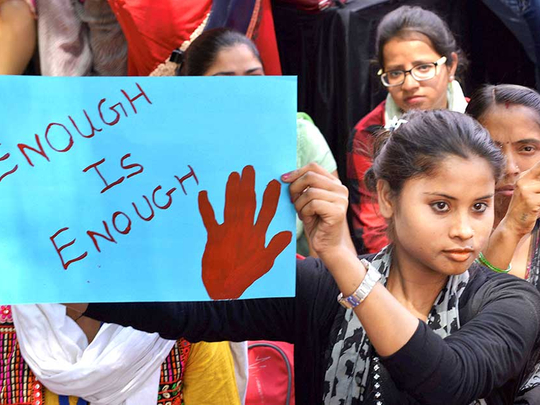
I remember that cold morning in December 2012. At NDTV, our reporters messaged us about a horrific gang rape and murder that had taken place in the heart of South Delhi. The victim was a 23 year old physiotherapy student who was assaulted and brutalised on a bus in front of her friend, who was also badly beaten, and then thrown out of the vehicle, naked, left to die.
Nirbhaya fought bravely for many days in hospital but eventually died nearly two weeks later. Her story shook the country to the very core. The opposition at the time, lead by the BJP, tore into the UPA government and into Delhi Chief Minister Sheila Dikshit. And rightly so. It was a crying shame that a crime as brutal as this had taken place right here in the national capital.
Public anger was so high that ordinary folks came out to protest, demanding tougher laws and fast track courts. At one such protest near India Gate, I met mothers and daughters who were anguished with the government’s response. They were greeted instead with water cannons and tear gas shells. The Congress leadership was so tone deaf at the time that they did not even think it fit to go to the protest sites and meet people to reassure them.
Politics over rape
Nearly a year later, during campaigning for the Delhi assembly election, then Gujarat Chief Minister Narendra Modi said “When you go out to vote on Dec. 4, do keep in mind ‘Nirbhaya’ who became a victim of rape. Delhi has come to be known as the rape capital. Delhi, which is heart of the country, has earned such a bad name as Congress has failed to provide safety and security to our daughters,” he said.
I have often said that the Nirbhaya gang rape was a turning point in the way mainstream media covered issues related to sexual violence. It was a story that was front page news for several weeks, and the only story which was debated every night on prime time TV news in that time.
It stirred an important conversation on rape and sexual violence against women and forced the UPA government to bring in a tougher law in parliament. The role of the media, the opposition and ordinary citizens was important in all this.
Which is why I do not understand this term — “don’t politicise rape”.
This was the response of the BJP’s Sambit Patra to Rahul Gandhi’s support for the family of a 9 year old Dalit girl, who was allegedly brutally raped, killed and then forcibly cremated in front of her mother last week. The horrific case has lead to protests among residents of the area where she lived, with people demanding justice. It has lead to angry protests from the opposition, and rightly so.
A horrific crime
As NDTV reported, the quick cremation of the little girl’s body immediately drew comparison’s with another gruesome case from Hathras in Uttar Pradesh, where in September 2020, the rape victim was cremated in the dead of the night without the consent of her parents.
For the BJP to say ‘don’t politicise rape’ when their own leaders actually held rallies in support of the alleged rapists in the infamous Kathua rape and murder case back in 2018, is an even bigger irony. India’s Home Minister, who is in charge of law and order in Delhi, has not uttered a word on the 9 year old. Neither has the otherwise vocal Women and Child development minister, Smriti Irani.
The problem in India is that we do not politicise issues of women’s safety enough. Rape and violence against women MUST be politicised, especially in a democracy where politics is often the route to get justice. The problem is that our political parties do NOT prioritise women’s issues and as voters we do not hold them accountable enough for law and order.
Nirbhaya’s story shook all of us. A few weeks after she died, I drove to the Munirka bus stand where she had boarded that bus and broke down. As a woman, I felt we had all been violated by what happened to her. Today, as the family of this child struggles to get justice, the feeling is the same. I wonder if we ever learnt anything at all.







